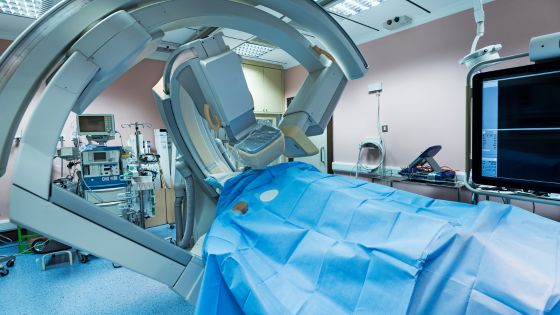In the era of precision medicine, where advancements in medical technology and research are revolutionising the way we approach healthcare. One such field that has seen remarkable progress is angiography, a diagnostic imaging technique used to visualise blood vessels in the body.

In this blog, we will explore how angiography, in conjunction with precision medicine, is enabling personalised approaches to vascular health.
Understanding Angiography
Angiography is a non-invasive or minimally invasive procedure that provides detailed images of blood vessels, helping healthcare professionals diagnose and treat various vascular conditions.
Traditionally, angiography involved the injection of a contrast dye into the blood vessels, followed by X-ray imaging.
However, with the advent of advanced imaging technologies such as magnetic resonance angiography (MRA) and computed tomography angiography (CTA), the process has become safer and more efficient.
Role of Precision Medicine
Precision medicine is an approach that takes into account individual variability in genes, environment, and lifestyle when designing treatment plans.
In the context of angiography, precision medicine allows healthcare providers to tailor diagnostic and treatment strategies based on a patient’s unique characteristics.
By combining the detailed images obtained from angiography with personalized patient data, healthcare professionals can make informed decisions about vascular health management.
Personalized Approaches to Vascular Health
Here are some of the choicest approaches to peak vascular health.
Risk Assessment and Prevention
Precision medicine enables healthcare providers to assess an individual’s risk of developing vascular diseases by considering various factors, including genetic predisposition, lifestyle choices, and medical history.
By identifying high-risk individuals, proactive measures can be taken to prevent the onset of conditions such as atherosclerosis or aneurysms.
Early Detection and Diagnosis
Angiography plays a crucial role in the early detection and diagnosis of vascular conditions.
With advanced imaging techniques, healthcare professionals can accurately identify and locate blockages, narrowings, or abnormalities in blood vessels.
This early detection allows for timely intervention, reducing the risk of complications and improving patient outcomes.
Targeted Treatment Strategies
Precision medicine allows for the development of targeted treatment strategies based on the specific characteristics of a patient’s vascular condition.
With detailed angiographic images, healthcare providers can precisely plan interventions such as angioplasty, stent placement, or bypass surgeries.
Personalised treatment approaches not only improve the effectiveness of interventions but also minimise potential risks and side effects.
Monitoring and Follow-up
After treatment, regular monitoring and follow-up are essential to ensure the long-term success of interventions.
Angiography can be used to assess the progress of vascular healing, identify any recurrent or new blockages, and make necessary adjustments to the treatment plan.
Precision medicine facilitates ongoing monitoring and ensures that patients receive the most appropriate care based on their individual response to treatment.
Angiography, in combination with precision medicine, has ushered in a new era of personalised approaches to vascular health.
By leveraging advanced imaging technologies and considering individual characteristics, healthcare providers can tailor risk assessment, early detection, treatment strategies, and follow-up plans to each patient’s specific needs.
As precision medicine continues to evolve, we can expect even more targeted and effective interventions that will further enhance vascular health outcomes for individuals worldwide.
Click below to check the costs involved in angiography procedure in various cities in India:
- Angiography Cost in Mumbai
- Angiography Cost in Bangalore
- Angiography Cost in Hyderabad
- Angiography Cost in Chennai
